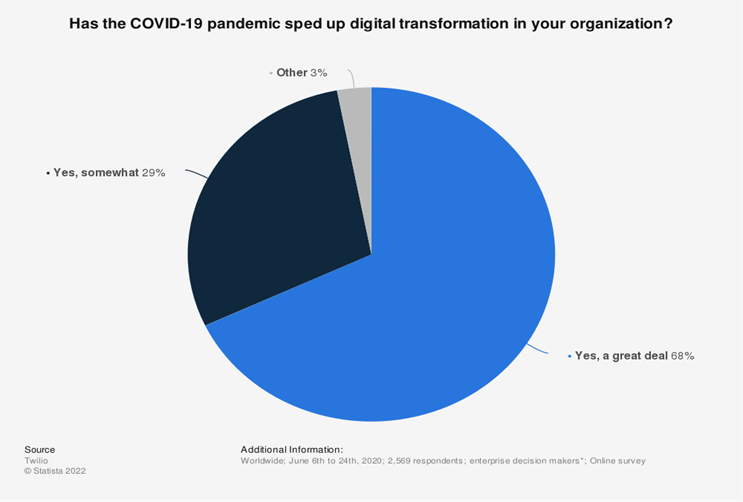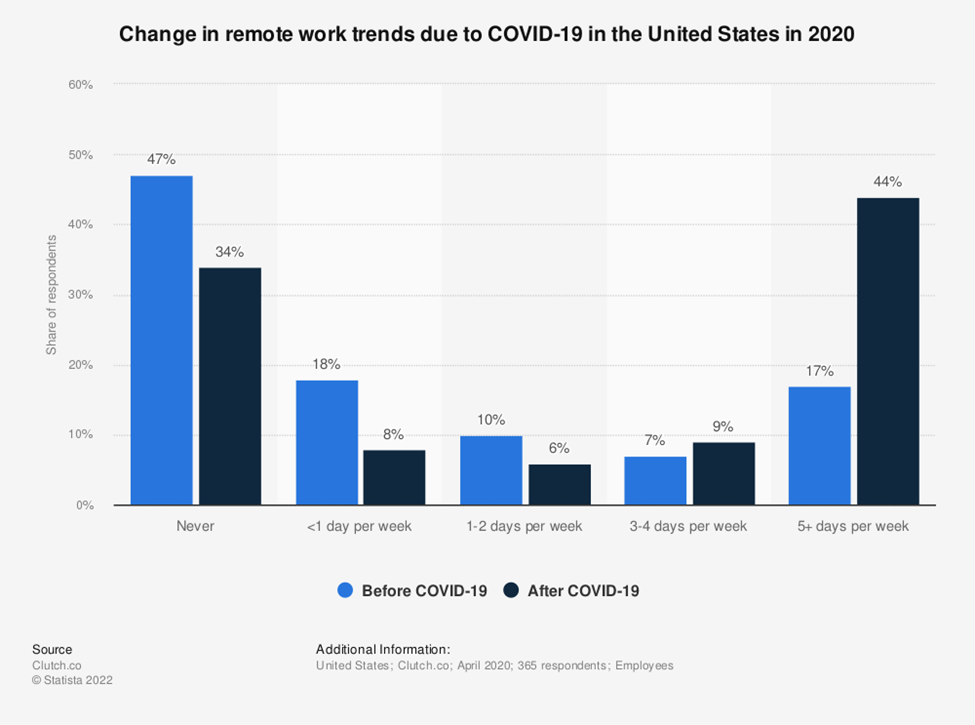Lockdowns, Corona Virus, Pandemic, Epidemic, Endemic, Ventilators, Work from Home, Remote Work, Masks, Sanitizers – These words sound way too familiar.
All of us have been hit hard by the pandemic one way or the other. We tried hard to adjust to the new normal, grapple with a new disease, and, most importantly, follow the strict government rules to stay at home. Staying at home meant you could no longer commute to work, access critical work documents, no face-to-face interactions with colleagues.
The only solution left was to work from home or work remotely.
Companies that already had digital procedures in place found it easier to deal with remote work settings during this time, while others scrambled to implement an efficient digital process.
Though digital transformation was necessary before the pandemic, the crisis created a tipping point as companies had no other choice but to adopt digital strategies to stay in the competitive market.

The digital transformation has seen the rise of many different technologies to support remote work, but the one process that was the most underestimated was the need for a Document Management System.
What is a Document Management System? And why is it necessary?
Employee productivity can suffer significantly in a remote work environment if document access and retrieval are time-consuming.
Document issues account for 21.3 percent of productivity loss, according to a global poll of workers and IT professionals conducted by IDC.
According to McKinsey analysis, employees spend 1.8 hours each day — or 9.3 hours per week on average — searching for and acquiring information. In effect, a person spends one day every week looking for the knowledge they need to execute their work and all of this searching leads to a considerable reduction in productivity.
Your document management system is your digital currency; your company’s ROI and revenues would suffer without it. If you lose your invoices, contracts, or bills or do not find them on time, your business operations will halt, and you will lose money, time, and effort.
Hence it is essential to invest in a good Document Management System that integrates into your work processes and stores your data in the cloud for easy accessibility.
What are the benefits of having a Cloud-based Document Management System (DMS)?

Easy to collaborate
But with a cloud-based DMS, all the documents are available in one single place, and they are easy to access by multiple internal employees at one go without any lag in the system.
Collaboration is so much easier and faster when all the documents are available on a single plane to remote workers worldwide.
Freedom from Infrastructure
The physical servers, integrations, and scaling of the servers up and down based on the incoming requests, maintenance, and security are entirely handled by your cloud service provider.
Centralized Storage
The unlimited storage and user access mean the DMS is accessible as a single source of truth, documents are updated in real-time, and changes and versions are readily available.
Most significantly, regardless of where they work, every employee can access this information simultaneously. To log in and access the DMS, all you need is a computer, an internet connection, and a web browser.
DMS provides Efficiency
Thus, increasing the employee and company efficiency.
Business continuity
An efficient DMS ensures business continuity; the pandemic saw the rise in DMS adoption since other manual forms of document management were just impossible to maintain due to offices shutting down, and any other digital process for maintaining documents proved to be cumbersome.
DMS ensured business continuity for most of the companies during the pandemic.
What is a good Document Management System?

Let us delve deeper and find out what makes a good DMS,
Easy to Integrate
A DMS which integrates smoothly into the existing business applications such as Salesforce CRM, ERP, or electronic signature applications breaks the data siloes.
It provides a single point of access for documents from all the different content management systems. Documents are easier to search, and seamless integration enables easier adoption of the DMS into the business processes.
Security
In such a scenario, security plays a prominent role in ensuring smooth operations and business continuity.
A robust document management system must be GDPR compliant, give information on a single interface for easy document management, and control who can view the document and when.
Automation
A DMS must give managers and staff a clearer picture of project progress, prompt users to take action, and even approve documents more quickly via e-signature integration.
Conclusion
- What information do your employees need?
- Where is the information stored currently?
- Are the employees able to access this database remotely?
- Is this database secure?
Want to adopt the best document management software and solutions for your business? Arrange your free consultation with KCL Cloud and find out more!





0 Comments